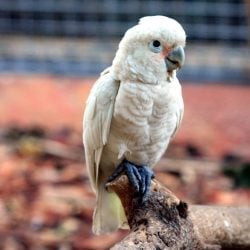Last Updated on by Catherine Tobsing
Lisa N. has concerns about her 2 conures behavior,
My question is an easy one I hope. Lately our 7 yr old female GCC and our Pineapple Conure 2 and a half yr old boy, I think he’s going threw his terrible 2’s if there is such a thing with birds. He’s been real hormonal and they have been fighting with each other a lot lately and trying to get them apart we always get bitten is there something we could do to get them back to being the best friends they were.
I know birds are birds but it just came on so sudden we were thinking of the 72 hr (Light treatment) again for both unless you can suggest something else. We have tried taking 1 out and leaving 1 in and the one that is out going to the cage and they start fighting. You’ve always given such great advice I’m just worried about my babies.
Thanks, Lisa N.
Deep breath grasshopper.
Lisa continues
They have been together for 2 years and most of the time they get along like best friends it’s just been in the last 2 weeks the fighting has started now all the time and you’re right, our 2-year-old boy is very energetic while Reggie being 7 years old likes to sit in her cage or on one of the ropes hanging around the house or on top of the kitchen cabinets. But she has her times when she can be a little pistol.
Our boy bird loves being with my husband and will only come to me when he’s not around except the other day we were putting groceries away and he was on my husband’s shoulder and all of a sudden he flew over and attacked my ear lobe. Talk about pain, so I told my husband to put him in the cage for awhile he had never attacked me like that. He is very hormonal, he masturbates all the time and his colors are changing so that’s why I thought maybe 72 hrs for him but if not then hopefully they will get past this and become friends again.
Dear Lisa
I have a friend who had two Lilac Crowned Amazons. Both females, well, one passed. She then brought home a young male Lilac and this started years of trouble for her and the birds.
The female was not happy with the young male’s energy and my friend had to spend a lot of time being there to supervise them, and separate them when there was fighting.
Then the male matured enough for the female to accept him and the trouble continued.
This time it was my friend being the odd man out. The two birds had bonded and now she was the outsider.
This was crushing for my friend because the original female was her first pet and now she was losing her to another bird.
She now also found they became aggressive to her and the female flew onto her face and cut her up badly requiring stitches. In fear, she scooped up the birds and relinquished them to a rescue but thankfully, recovered and brought them back home.
She had to make adjustments to have their wings clipped and carry a broom with her for protection when she went to feed them or tend to their cage.
The birds are just being birds and she put them and herself into a position of a bad scenario.
Mother nature is a powerful source and sometimes it doesn’t go as hoped for.
You had a sweet female bird who loved you, then you added a young male.
You have tried to control their hormones with the lighting, but sometimes it is not enough.
You may have to keep them separated to keep them safe from each other.
We have three small male parrots (African Ringneck, Quaker, and a Cockatiel).
We had hoped that they might become friends, but nope.
The quaker is the aggressor and his life revolves around trying to get into the cage belonging to the ringneck.
We are rarely able to have them both out of their cages at the same time.
We may start with them both out, but the quaker will hop, fly over to the ringneck’s cage, enter it, remove the lock if needed (we have replaced it with a scissor clip), then the ringneck flies out, landing nearby but out of reach.
The quaker will go in, eat food, drink, ring bells and play with all the toys, then rub himself on everything and then even take a nap.
All in the ringneck’s cage.
Meanwhile, the ringneck is now whining loudly for us to do something about it.
So we reach in and pull out the quaker, put him in his own cage (that contains the same food and treats plus 3 times the amount of toys.
Then the ringneck is happy again.
The quaker will also fly over to the cockatiel’s cage and that causes the cockatiel to fly off where we have to go rescue him, remove the quaker. Add repeat.
So we mainly just alternate letting the ringneck and the quaker out. It saves a lot of headaches.
You will have to do that as well, supervise and perhaps over time the male will mature, slow down a little in his aggression towards the female.
However, if they bond, you will have new issues. Set them up with a nest box or not? Then what about their babies?
Lisa writes one week later
Good Sunday afternoon Catherine, I just have 2 quick questions. Our Reggie girl and Kiwi boy have been fighting a lot lately they are not even preening each other and if we leave one in the cage while the other one is out the bird that is out will keep flying over to the cage and then they fight threw the bars. I know the 72 hr (light treatment) doesn’t cure anything and I know birds are birds it’s just hard to watch them fighting instead of being best friends anything you can suggest would be helpful.
Also, what type of humidifier would you recommend for my birds?
Thanks, Lisa N.
Dear Lisa
It is never pleasing when our pets fight. We all want harmony in our homes.
We have to keep our Quaker and the African Ringneck separate, caging one while the other is out. It was not the plan but resorting to that practice has kept peace in the house.
The quaker will climb all over the ringneck’s cage, but he can’t reach him and the ringneck has learned that he is safe and no longer stressed while the quaker climbs around him. The cage is large and he just ignores him. After a while, the quaker usually goes back to his own cage or visits us. After a bit, he gets locked up and the ringneck gets let out. It works.
We don’t just let them out and wait until they have started to bicker or fight before we separate them. We just follow the plan of rotation so we are not having to follow up on a bad situation all the time.
Also, realize that it is getting to the time of year (January through March) when ALL bird’s hormones are starting to rise up. If you will go back to your past emails to us you may find that the problems started around this time of year.
By March this new aggression may ease up some.
Like I have said, you have a boy and a girl, of different ages that are not fully bonded and are dealing with their hormones. As long as you have them in close proximity, this will not be able to be fully resolved. The lights help by resetting their CR, but as they are still together, nature kicks back in and undoes all of the work.
Keep your babies safe…apart.
Catherine
Hi Lisa,
Best, MitchR
Author Profile

Latest entries
 Bird & Parrot CareJune 20, 2025Understanding the Best Way to Use Prevue Pets Mimic Me Voice Trainer
Bird & Parrot CareJune 20, 2025Understanding the Best Way to Use Prevue Pets Mimic Me Voice Trainer Bird BehaviorJune 6, 2025How Do I Keep My Parrot From Dumping His Food Every Day?
Bird BehaviorJune 6, 2025How Do I Keep My Parrot From Dumping His Food Every Day? Birds & LightingMay 16, 2025I Am Seeking Clarity About Lighting for My Birds Cage
Birds & LightingMay 16, 2025I Am Seeking Clarity About Lighting for My Birds Cage Bird RescueApril 29, 2025How Do We Re-Home a 17 yr Goffin Cockatoo?
Bird RescueApril 29, 2025How Do We Re-Home a 17 yr Goffin Cockatoo?



